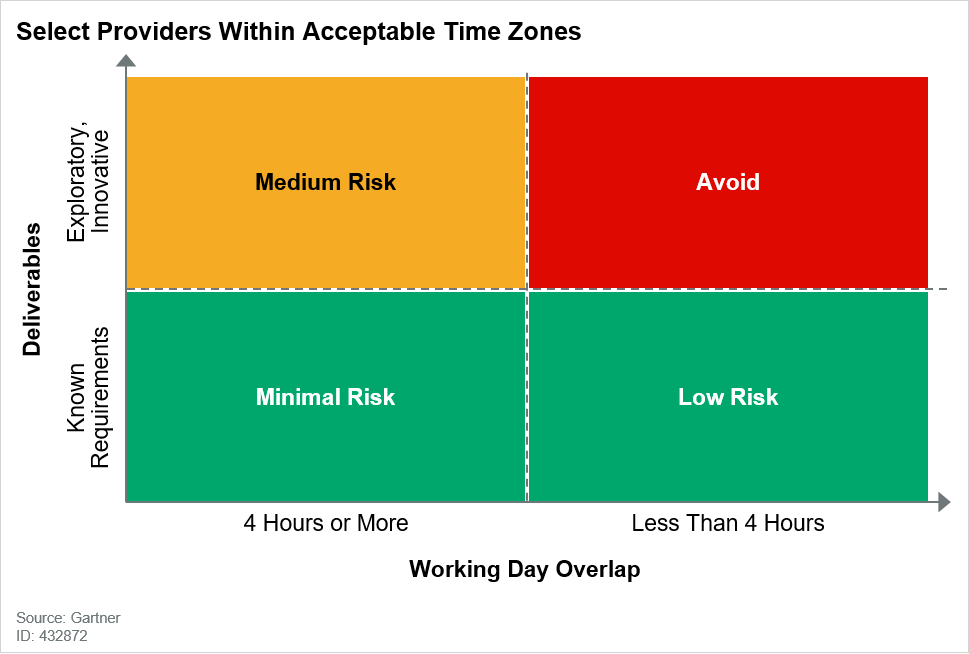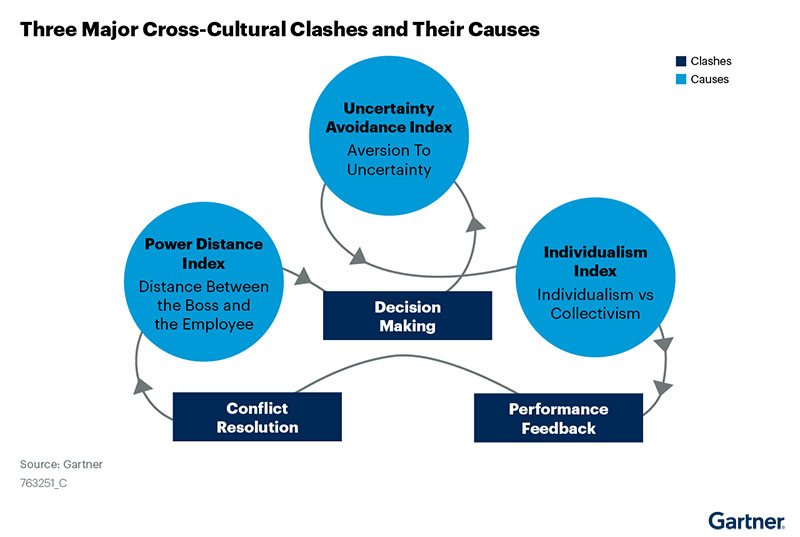Hiring offshore development companies to handle different aspects of your software development or even take on full projects has been a prevalent theme for years. Companies which utilize offshore software development services often find the most significant benefit includes lower development costs compared to onshore or nearshore development services.
Although offshore software development services can be cheaper upfront, the costs associated with the time it takes to gather and relay software development requirements to non-native speaking developers, QA and approve work with software development teams in completely opposite time zones, and time and effort spent fixing potential software bugs post-deployment can end up costing companies much more in the long run. It is important for organizations to truly weigh the pros and cons of working with an offshore software development team.
What Is Offshore Software Development?
Offshore software development involves outsourcing software development projects or tasks to either an individual or team of software developers in another country. “Offshore” is a relative term, based on the locations of the organization searching for development services and the individual developer or team of developers performing the work.
For example, an American company requiring new software to be developed for their organization can hire a team of software developers in India to fulfill their development needs.
Who Benefits From Offshoring Software Development?
Small to medium-sized companies are often the most likely to search for and acquire offshore software development services, as their ability to hire a team of full-time in-house software developers is limited by their financial circumstances. In 2020, it was reported that the median salary of a software developer in the United States was $110,140.
Depending on the needs and requirements of the project, the recommended size of a software development team can vary drastically, thus making it nearly impossible for lower revenue generating companies to employ of group of internal software developers.
The Monetary & Non-Monetary Costs Of Offshore Software Development

While some these cons become apparent during the actual development process, many organizations which utilize offshore software development services realize the monetary and non-monetary costs of working with an offshore team far after the completion of the project.
Poor Communication Due To Time Zones
Arguably, the biggest downfall to hiring offshore companies for your software development is having to manage a huge part of your team in another part of the world. Time management greatly impacts both the technical and business aspects of software development, and it can be tricky to have your development team in another time zone. Proper communication is critical for any project, but the issue of time zones complicates that because your team isn’t working at the same hours.
The flow of information for your project may be altered significantly when an issue is identified at one time. Yet, you may still have to wait hours until it is daytime in another country before getting any feedback on it.

Finding a way to align work hours with your offshore development team and the rest of your in-house team can be nearly impossible, and both sides will have to accommodate the schedules of the other. As a result, there will likely only be small windows where you can engage in real-time communication and problem-solving, reducing your team’s efficiency and productivity.
Figure 3.1 provides a visual representation of choosing a software development team within an acceptable time zone based on the project’s deliverables and the opposing time zone differences.
Cultural Differences
Collaboration on a project can be largely hindered by the differences in cultural practices between your offshore and in-house teams. While cultural variations and differences are generally appreciated and encouraged, in a workplace, they may prove challenging. Work culture and practices differ from place to place, and time can be wasted trying to understand and adjust to the differences in work practices from another culture.
A team of developers in East Asia will likely have different methods of operation than a team of developers situated in America. The practices of these different cultures are neither right nor wrong, but they do pose an obstacle when it comes to team collaboration, understanding your team members, and working in harmony to complete a project.

There are three main cultural aspects to consider when determining if the cultural differences between your organization and the offshore software development team will impact the project; conflict resolution, decision making, and performance feedback. Figure 3.2 outlines these aspects and the causes for teams to clash including the power distance index for conflict resolution, the uncertainty avoidance index for decision making, and the individualism index for performance feedback.
Travel Planning & Visa Processing

Flying in your foreign workers will include having to organize travel documents such as work visas for them. Work visas that permit employers to hire foreign workers are heavily restricted, and the application process for them can be extremely stressful to navigate.
Time Spent On Travel
Alternatively, instead of flying your offshore team to meet you, you will likely have to make several business trips a year to visit the team and monitor their work in person.
Business trips are common enough even when you are not dealing with offshore workers, but having members of your development team working offshore means that core members of your in-house team will have to make frequent visits to wherever they are based. This results in a lot of time spent in the air, not to mention time wasted due to jet lag. Over time, the hours spent traveling will accumulate.
Making work trips to visit your offshore team is essential, but the trips will have to be made either on company time or on the personal time of your staff, neither of which is ideal. You will also have to consider the expenses involved in cross-continental travel. Costs such as airline flights, food, housing accommodations, Wi-Fi and any other expenses they might need while abroad.
Due to the coronavirus pandemic, countries have set limitations and regulations in order to reduce the outbreak of the virus. Depending on the region, some additional expenses may occur due to last-minute lockdowns. Some will either need to leave immediately or need to extend their stay.
Ineffective Agile Management
Agile management is a system of project management where large projects are broken down into short phases or cycles that are easier to achieve. Utilizing Agile methodology has proven to result in better-executed projects and overall improvements in a team’s productivity. However, the Agile method involves high levels of communication and collaboration that may be difficult to achieve when working with an offshore team.
One of the benefits of Agile is that it allows for rapid problem-solving and quick work on large projects. However, an offshore team is highly incompatible with Agile, and having members of your team inaccessible for large periods or dealing with language and cultural barriers renders the Agile system ineffective and useless.
What Affects The Costs Of Offshore Software Development Services?

When considering outsourcing your software development projects, you will have to note the following factors to find an offshore option that works with your budget.
Project Size
The size of the project you are outsourcing contributes immensely to the final cost of your offshore development. Larger projects will likely require a bigger team of workers to complete, which will increase the overall development cost. The size of the project includes its scope, what type of development is involved, the project’s level of complexity, and more. Projects may be small-, mid-, or large-sized.
Software Requirements
The requirements of the software project also contributes to the price of hiring offshore talent for your software development needs. The complexity and volume of requirements involved within the project may require more highly skilled developers and factors into the overall amount of time required for completion.
Developing a new software from scratch will be priced differently than making modifications or upgrades to an already existing software. Therefore, when determining the cost of your offshore development, you will have to consider the software development requirements to understand the overall costs of the project better.
Deadlines
Projects with tight or short deadlines will likely cost more than projects with more time for development. When thinking about hiring an offshore company for custom software development, you have to consider how quickly you want your product to be on the market. You may want to release your project by a certain time or before a competitor releases a similar product to the market.
Alternatively, your team may decide to delay the release of a product or dedicate more time to development, based on additional requirements or features of the software. These timing decisions affect the cost of hiring offshore development services in different ways.
Complexity

Features of the project like its UI/UX design, software architecture and integration, and the software’s functionality can all determine how complex the project is. Projects that involve simple designs or modifications and updates will likely cost less. In contrast, projects that involve development from scratch for software with high or complex functionality will likely cost more.
Miscellaneous Costs
Every project has some additional costs that you must factor in when budgeting. For example, offshore development companies can charge for miscellaneous things or include additional charges for licenses and infrastructure. In addition, some offshore development companies charge for further maintenance of the software or charge extra for any modifications you may request.
This is why you should include miscellaneous costs in your budget for offshore development, and you should discuss these additional costs with the company before working with them.
View Guide To Onshore & Offshore Software Development
Is Outsourcing Right For Your Organization?
Hiring offshore development companies to handle your software development is not only tempting, but can prove to be highly beneficial to your company. The significantly reduced costs allow you to divert funds to other aspects of your business and other departments of your company. But, for many companies, the true cost of offshore development is not the reduced hourly rate, but the efforts spent on reconciling your offshore and in-house teams and managing the pitfalls of that.
Offshore development is a valid option, and working with the right company can ensure that you get premium rates as well as a highly efficient team of developers. At Orases, they can provide premium, expert software development services for whatever your needs may be. Check out the scope of Orases’s services here, or you can contact them directly by calling 301.756.5527 or by requesting a consultation online.







